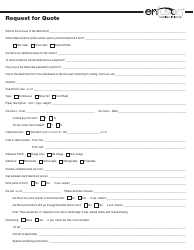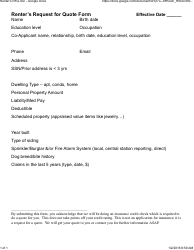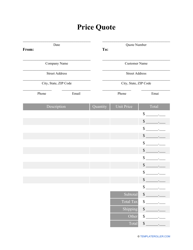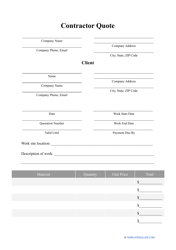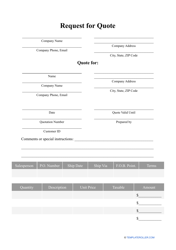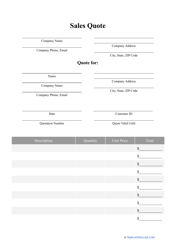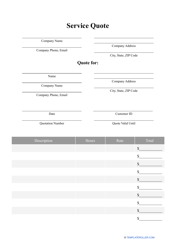What Is a Freight Quote?

Traditionally, Business Quotes are requested by prospective buyers who want to know the terms of sale, the price of goods and services, and the details of delivery the sellers are able to offer. If you need to transport items from one place to another by sea, air, or land, you should ask a freight provider to give you their rates and figure out which mode of transportation is preferable for the goods you have on hand. Compare several Freight Quotes from different businesses to find the most convenient and fastest way to deliver goods to the consignee.
What Is a Freight Quote?
A Freight Quote is a formal document composed by the freight forwarding company to let the customer know how much money the latter has to spend to cover the cost of shipment.
Alternate Names:
- Shipping Quote;
- Shipping Freight Quote;
- Postage Quote.
In case you need to ship multiple or cumbersome packages by truck, ship, or plane, consider multiple benefits offered by freight shipping - high-quality carriers with a good reputation, competitive rates, and prompt delivery. However, before you sign a contract with a carrier and hand over your items for shipment, you should get a Freight Quote to know whether they will be ready to ship your cargo, what freight category your goods belong to, and what rates you can hope for when negotiating an agreement with the other party.
How to Get a Freight Quote?
To obtain a Freight Quote, you need to contact a freight provider - it can be a freight broker, online freight exchange, or freight expeditor. Whether you are looking for an international Freight Quote or you plan to deliver items domestically, you will be asked the same questions to let the freight company calculate the price of shipping: where you are shipping to and the destination of the package, the description of the parcel, the notifications for the delivery. You may select a single shipment or negotiate a shipping solution if you need to send multiply packages every month on behalf of your business.
There may be issues that impact the initial conclusions made with the help of a Shipping Quote:
- Shipments exceeding regular size - you will have to pay a fee if your goods require extra space, so be prepared to set aside some funds to cover these charges.
- Shipments of more than a hundred pounds will require trucks with liftgates.
- Limited access to the drop-off location - consider adjustments to the quote in case the commercial business is not open to the public or there are no employees that can help with unloading.
- Amendments to the original bill of lading. Often used in conformity with the sea Freight Quote, this document may have to be modified at the very last moment which means the shipment may be delayed. Make sure the parties decide who bears financial liability for these risks and establish a procedure to issue a switch bill of lading to speed up the process of delivery.
How to Quote Freight Rates?
Freight companies often give their current and future clients a chance to get an approximate estimation of expenses with the help of a Freight Quote calculator they offer online. While it may be impossible to predict certain circumstances of the shipment, the following factors will definitely influence the freight rate:
- The origin and destination of shipping. You should know zip codes of locations and additional details like the area of pickup and delivery (commercial or residential), the presence of a loading dock, the necessity to call first and make an appointment.
- Dimensions and weight of the package. Both elements define the density of the shipment, and this is how an appropriate freight classification is determined. The items you are shipping also matter - different commodities mean different equipment; for example, food will be moved in refrigerated or temperature-controlled trailers to keep it fresh.
- Extra services that incur additional charges. Before you use the calculator to compute the cost and get a Freight Quote, you have to know whether the identity of a supplier should be hidden from the customer creating a blind shipment and if the carrier needs to sort or separate different packages or contact the consignee to warn them about the upcoming delivery or discuss other details of shipment.
Related Topics:
